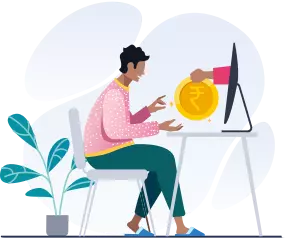The Export Promotion Council for EOUs and SEZs (EPCES) was set up in 2003 by the Ministry of Commerce and Industry, Government of India to support and supplement the endorsement and promotion of exports, specifically from Export Oriented Unit (EOU) and Special Economic Zone (SEZ) units in India. EPCES functions as an intermediary and mediator between the government, merchants and entrepreneurs who form a part of the exporting community at the state and central government levels. The council collaborates with several other export promotion councils in India and similar organizations internationally. The EPCES represents approximately 6000 EOU and SEZ units in India that account for 30% of all national exports.
EOUs encompass various industry categories, such as manufacturing, software development, repairing, maintenance and jewellery. EOUs also include agriculture, husbandry, horticulture and biotechnology sectors. Special Economic Zones (SEZs) are areas where trade and merchant laws are distinct from the other parts of the country. These are typically located within the national borders of a country, often set up in order to boost national trade, foreign investment and to create new jobs.
Read Also: Promotion Council
Special Economic Zones are typically set up to enable the production of goods at low costs through a variety of new policies related to taxation, trading, and labour and customs laws. In India, first SEZs were set up in 2000, where they were known earlier as Export Promotion Zones (EPZs). Since after 2005, all EPZs have been converted to SEZs. Currently, there are more than 220 SEZs in India.
The Role of EPCES
The Export Promotion Council for EOUs and SEZs performs a wide range of functions that are geared towards promoting a range of export activities from special economic setups and regions, such as EOUs and SEZs respectively. EOUs and SEZs in India are spread over a variety of industries related to the following goods and products:
- Textiles
- Garments
- Precious stones, gems and jewellery items
- Leather goods
- Food products
- Agricultural products
- Electronic and software products
- Pharmaceutical products
- Chemicals and associated products
- Engineering technology products
- Minerals, Stones
- Petrochemicals and associated products
- Rubber products
EOUs and SEZs are both unique geographical areas that are directed towards specific trade goals. EOUs were set up in India specifically to increase exports and subsequently boost foreign trade. It was considered as supplementary to the Free Trade Zone and Export Processing Zone. Only those units that are directed specifically towards exporting all of their produce are registered as EOUs.
The significant goals and objectives of the EPCES could be summarized as following:
- One of the main aims of the EPCES is towards the restoration of original SEZ Act that had initially attracted a lot of domestic and foreign interests. EPCES aims to directly represent the interests of various entrepreneurs and manufacturers in India, who have been seeking to restore this legislation.
- EPCES seeks to attract entrepreneurs and manufacturers through the revision and restoration of the original SEZ rules, without needing to resort to concessions.
- EPCES hopes to revive the EOUs in India, who were also the first economic agents to bolster the ‘Make in India’ initiative.
- EPCES seeks to push towards the revision of GST rates on exports from SEZs so that SEZ businesses can expand further in India.
- In recent years, EPCES has also organized several seminars, conferences and workshops for better coordination between various state and central agencies concerned with EOUs and SEZs and towards better policy-making.
- EPCES has also taken up the issues of EOUs and SEZs in India and given them a platform by coordinating with The Ministry of Finance, Ministry of Commerce, Central Board of Indirect Taxes and Customs, Central Board of Direct Taxation, Reserve Bank of India and various state governments.
- EPCES has also organized several trade shows and fairs on international platforms.
- Like the other export councils, one of the significant roles of the EPCES is in the education and skill development of its various members. Hence, EPCES has taken several steps towards informing its members about the various developments in national and international trade.
- The EPCES releases publications on both national and international levels to help Indian entrepreneurs gain a better perspective on international trends and vice-versa.
- In recent years, EPCES has also organized several buyer-seller meets with EOUs and SEZs promoting export activities.
Becoming a Member
Since 2018, the process of becoming a EPCES member has become much easier. Thanks to a new membership software application that has reduced the registration time from 20 days to less than 2 hours. One of the main significant features of new EPCES portal is that the dashboard function now allows members to interact with each other and the council. Owing to the digital membership portal, new EPCES interactive system has also enabled faster collection of relevant data, as well as better feedback on their policies.
The new membership system, applicable since the 2018-19 financial year and protected by the latest encryption technologies enables membership renewals, downloading membership e-certificates and applying for new memberships. Significant outcome of the digital platform is that there are no more paper applications, with the web portal providing a simplified step-by-step process for registration that one can complete in less than 2 hours. If anyone is interested in joining the import-export industry or becoming a stakeholder and manufacturer in SEZs in India, there are a variety of business loans that he/she can avail.
Purpose of EPCES and its registration
The EPCES promotes various special economic facilities like EOUs and SEZs in India on both national and international platforms. This includes the publication of relevant material to provide greater exposure to Indian SEZs and EOUs, organize conferences, seminars and workshops, buyer-seller meets while playing the role of an intermediary/mediator between various government ministries and EOUs and SEZs in India.

